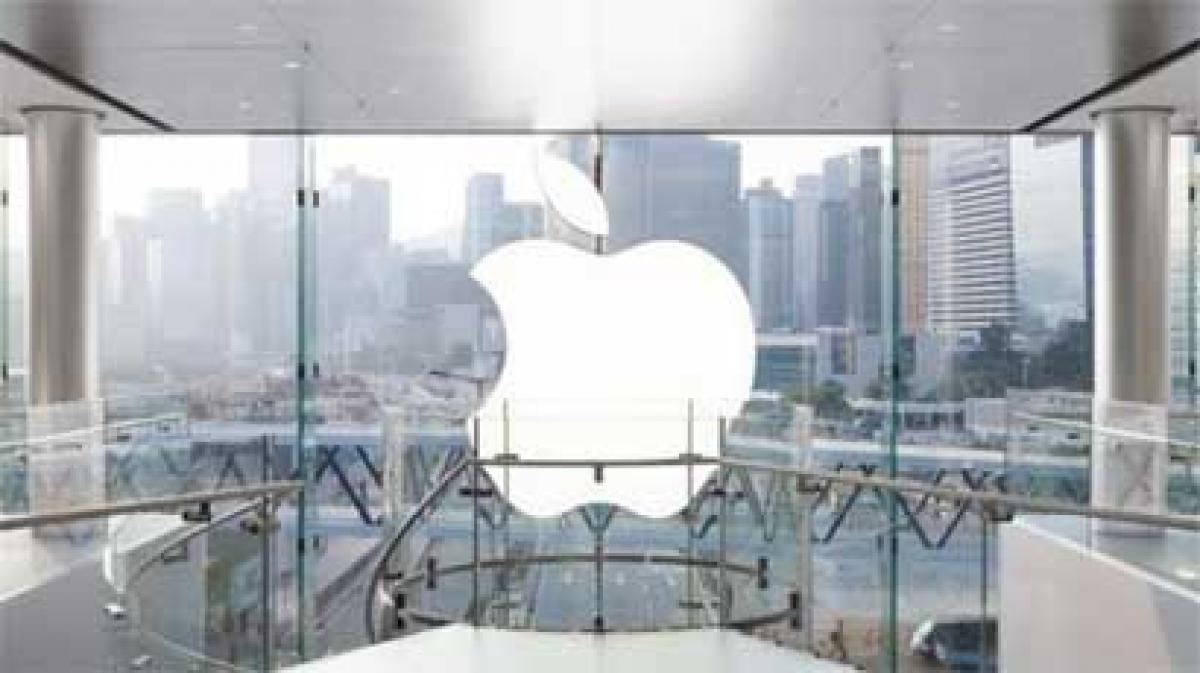Live
- GMR Airports Unveils AI-Powered Digital Twin Platform to Transform Airport Operations
- India poised to become leading maritime player: PM Modi
- Top Causes of Kidney Stones and How to Recognize Silent Symptoms
- India’s renewable energy capacity logs 14.2 pc growth at 213.7 GW
- Winter Session of Odisha Assembly adjourned sine die
- Biden calls Trump's tariff approach 'major mistake'
- After Drama Over Eknath Shinde’s Chief Minister Race, Maharashtra Cabinet Formation Faces New Tensions
- Egyptian FM, Blinken discuss recent developments in Syria
- Iran's supreme leader says Syria's developments result of US-Israeli 'plot'
- Elon Musk to Purchase $100 Million Luxury Mansion Next to Donald Trump's Mar-a-Lago, Report Reveals
Just In

Apple has also attacked the FBI investigation as \"shoddy\" and portrayed itself as \"the primary guardian of Americans\' privacy,\" federal prosecutors said in a court filing on Thursday.
The US Justice Department on Thursday said Apple Inc's rhetoric was "false" in a high-profile fight over the government's bid to unlock an encrypted iPhone belonging to one of the San Bernardino shooters.
Last month, the Federal Bureau of Investigation obtained a court order requiring Apple to write new software and take other measures to disable passcode protection and allow access to shooter Rizwan Farook's iPhone.
Apple has not complied. It said the government request would create a "back door" to phones that could be abused by criminals and governments, and that Congress has not given the Justice Department legal authority to make such a demand.
Apple has also attacked the FBI investigation as "shoddy" and portrayed itself as "the primary guardian of Americans' privacy," federal prosecutors said in a court filing on Thursday.
The company's "rhetoric is not only false, but also corrosive of the very institutions that are best able to safeguard our liberty and our rights: the courts, the Fourth Amendment, longstanding precedent and venerable laws, and the democratically elected branches of government," the prosecutors added.
The government said Apple "deliberately raised technological barriers" to prevent execution of a warrant.Apple did not immediately respond to a request for comment on the Justice Department's new filing.
The FBI says Islamist militants inspired Rizwan Farook and his wife, Tashfeen Malik, when they shot and killed 14 people on Dec. 2 at a holiday party. The couple later died in a shootout with police and the FBI said it wants to read the data on Farook's work phone to investigate any links with militant groups.
Tech industry leaders including Google, Facebook and Microsoft and more than two dozen other companies filed legal briefs last week supporting Apple. The Justice Department received support from law enforcement groups and six relatives of San Bernardino victims.
A hearing in the case is scheduled for March 22 in a Riverside, California federal court. Apple Chief Executive Tim Cook has said he is willing to take the case to the Supreme Court.
The Justice Department also objected to claims made by Apple and other tech companies that the Communications Assistance for Law Enforcement Act of 1994 limits when companies could be forced to comply with orders for intercepting communications.
"CALEA did not deprive this Court of its power to issue the Order," the filing reads. "Congress's intent in passing CALEA was not to weaken existing judicial powers," it said.
Prosecutors also criticized claims by Apple that developing the new software code would be burdensome for the company. They noted Apple "grosses hundreds of billions of dollars a year" and would only need ask a handful of its 100,000 employees to work on the project for "perhaps as little as two weeks."
The Justice Department has repeatedly attempted to frame the Apple case as one that is not about undermining encryption and that the court order narrowly targets a "non-encryption barrier" on one iPhone.
But Thursday's filing noted that asking for decryption services "would not be novel, either." It cited an 1807 case holding that a clerk working for Aaron Burr, then a former US vice president, could be forced to decode a letter penned by Burr if doing so did not lead to self-incrimination.
Similar issues were raised in another case this week, in which the government sought to overturn a ruling protecting Apple from unlocking an iPhone in a New York drug case.

© 2024 Hyderabad Media House Limited/The Hans India. All rights reserved. Powered by hocalwire.com







